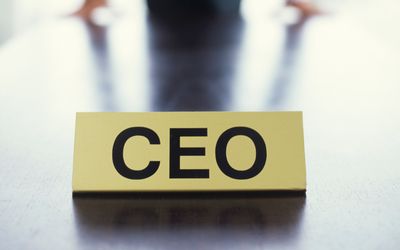Each week we read dozens of transcripts from earnings calls and presentations as part of our investment process. Below is a weekly post which contains some of the most important quotes about the economy and industry trends from those transcripts. Click here to receive these posts weekly via email.
This Week’s Post: Macy’s Misfortune
Macy’s was the first department store retailer to report results for the first quarter and it set a negative tone for the industry. It’s not necessarily surprising that a brick and mortar retailer is struggling, but the extent of the deterioration did seem worse than expected. One can’t help but wonder whether the weakness is really just industry specific.
The Macro Outlook:
Macy’s set a negative tone for the retail industry
“While the quarter started stronger, the business weakened considerably versus our expectations beginning in mid-March, and that trend continued through April…we are seeing weakness in consumer spending levels in apparel and related categories. The number of transactions declined 7% in the quarter, which is far worse than what was experienced last year.” –Macy’s CFO Karen Hoguet (Mall Retailing)
Department stores have clearly seen a meaningful and sustained deceleration in traffic
“During the first quarter, the data we received from our wholesale partners indicated a meaningful sustained deceleration in wholesale sell-throughs, not only in the United States, but also with wholesale partners in Europe. Mall traffic remains difficult, and many of our wholesale partners have announced transitions in their own businesses” –Fossil CFO Dennis Secor (Watches)
The question is whether that weakness extends beyond department stores. Macys is perplexed.
“All of us have been reading the stream of negative news stories about various retailers over the past several weeks. Clearly, our industry is in something of a rough patch. We know we are not alone. But the consumer seems to be doing okay…We’re frankly scratching our heads. We see the same economic data you all see and it would point to a customer that would be spending more.” –Macy’s CFO Karen Hoguet (Mall Retailing)
Lending Club saw credit quality deteriorate among its subprime borrowers
“let me start with a few comments on credit…For grades D through G, as we have previously shared, we have identified pockets of underperformance…These population segments were mainly characterized by high indebtedness and increased propensity to accumulate debt and lower credit scores.” —Lending Club COO Scott Sanborn (P2P Lending)
But capital markets have opened back up
“We see there is plenty of activity now. Bond markets seem to be rather wide open. There is a lot of M&A Chatter. It’s obviously far better in April and May than it was in January and February.” —JP Morgan CEO Jamie Dimon (Bank)
There’s still a malaise when it comes to IPOs though
“there were only eight IPOs in the quarter compared to 34 in the prior year…I would just say that I feel that sort of the malaise that surrounds the equity capital raising is still evident…I wouldn’t say there’s been a marked improvement certainly in April.” –Stifel CEO Ronald Kruszewski (Investment Brokerage)
Art markets have also been challenged
“On our last earnings call, we said that we did not expect sale levels for the full year 2016 to reach the annual held levels of 2014 or 2015. And as of right now our view remains unchanged…Of course our most significant data points for the second quarter kicked off tonight, with a number of important auctions to follow in the coming days so the next two weeks should provide all of us with a lot of good market intelligence.” —Southebys CEO Tad Smith (Art Broker)
Deteriorating conditions may make companies hesitant to buy back shares
“we elected not to repurchase additional shares of Hertz Global Holdings during the quarter. While we clearly believe our stock is significantly undervalued, we concluded that given the challenging revenue environment in the U.S. industry in the first quarter, it would be prudent to take a cautious stance for now.” —Hertz CEO John Tague (Rental Cars)
The set of investment opportunities is lousy anyways
“We continue to face a lousy opportunity set in financial markets. Equity valuations are still rich, and interest rates are still near historic lows. Now, more than ever, some significant volatility in both equity and fixed income markets would play to our advantage.” –White Mountains Managing Director Reid Campbell (Insurance)
And Steve Wynn says that the stock market is a “stupid gambling game”
“So the stock market has got more volatile, more stupid as a gambling game than ever before. And I look at it that way to be honest with you. I have very little respect for the integrity of the trading on the exchange in most stocks. And I have particular disdain for the fact that the SEC has failed to deal with high-frequency traders who are doing nothing more than taking advantage of inside information, a buy or a sell order, because of technology advantages.” —Wynn Resorts CEO Steve Wynn (Casinos)
International:
The Chinese government appears to be boosting consumption
“while there still remains uncertainty in the real estate industry, we believe market conditions will be stable in the coming quarter and expect favorable government policies to continue to enjoy additional demand for our projects.” –Xinyuan Real Estate CFO George Liu (Real Estate Developer)
But Chinese beer industry volumes declined by 4% in Q1
“Moving now to China, China beer industry volumes declined by around 4% in the first quarter due to economic headwinds. Our own volumes were down just over 1% in the quarter versus the tough first quarter last year, wherein our volumes grew by 4.7%.” —AB Inbev CEO Carlos Brito
Weakness in Brazil is spilling over into Florida tourism
“Orlando generates about 30-or-so percent of its attendance from international guests…Brazil is the lion’s share of that when you compare it to the other countries, so it’s significant for us. We’re seeing some softness in others, but Brazil really stands out, obviously, because of the currency, the currency difference.” –Seaworld CEO Joel Manby (Theme Parks)
Financials:
The DOL’s new rules for investment advisors will force the industry to evolve
“I think the industry will evolve and I think that you’re going to see manufacturers of product evolve as well, meaning that there will be more products that are available for advisory relationships because that’s certainly – make no mistake about it. The DOL rule certainly…discourages brokerage relationships.” –Stifel CEO Ronald Kruszewski (Investment Brokerage)
There is a lot of focus on blockchain technology
“Blockchain continues to be an area of critical focus across all of our business lines. It seems you can’t pick up an industry publication without reading about the power and potential of blockchain technology.” –Broadridge CEO Richard Daly (Information Processing)
Consumer:
Disney’s studio is crushing it, but no one seems to care
“This weekend, our 2016 box office total crossed $1 billion domestically, $2 billion internationally and $3 billion globally, reaching those milestones faster than any studio in history…I’m actually kind of surprised that after almost 45 minutes of questioning, we didn’t get one question about our Studio. But I just want to reiterate that the Studio’s results were up tremendously” –Disney CEO Robert Iger (Entertainment)
Traditional consumer companies are struggling to achieve scale in technology oriented fields
“scale matters a lot in these products…we’ve got to make a lot of upfront investments in engineering costs to get product to market. That requires for each major product line over 1 million units to really reach scale” —Fossil EVP Gregory McKelvey (Watches)
“we are absolutely not pulling back our commitment to digital and omnichannel retailing. Mobile remains a very high priority, and we continue to invest.” —Macy’s CFO Karen Hoguet (Retail)
Technology:
Rackspace thinks that Google will be a major player in the public cloud
“Google is clearly making progress on GCP, we do think that they will end up being one of the winners in public cloud” —Rackspace CEO Taylor Rhodes (Enterprise IT)
The cost of solar installation continues to decline
“we’re seeing the average selling prices of modules decline, we’re seeing the same happening with inverters and then there’s a couple of pretty big breakthroughs in the mounting hardware on the residential side as well as on the commercial side that will further drive down costs” –Solarcity CFO Tanguay Serra (Solar)
Industrials:
The industrial economy isn’t getting much better or much worse
“From our perspective the environment continues to be uncertain with economic indicators signifying little trend movement either positive or negative. We recognize that we cannot control microeconomic issues.” –Sun Hydraulics CEO Wolfgang Dangel (Industrial Equipment)
Companies are re-evaluating capital spending projects though
“Global economic growth for the first quarter was weak, setting up another sub-par year…For our commodity influenced businesses, we’re beginning to see clients reevaluate projects through studies and pre-feeds. Going forward, we do expect clients to continue to take a cautious, disciplined approach when they make their capital investment decisions” –Fluor CEO Dave Seaton (Construction)
Materials, Energy:
It may take $65 oil for the industry to return to growth
“We believe that in the U.S., it will take a sustained $60 to $65 oil price and 12 months of lead time for the industry to deliver a modest level of growth.” –EOG Resources CEO William Thomas (Oil Producer)
The recent rise in prices is helpful, but many oil companies are no longer expecting significant improvements
“Obviously oil prices going up, commodity prices going up recently is helpful…I don’t see that having a large impact in 2016…we’re definitely trying to structure the business around this new norm realizing that oil is going to be in this range, at least based on our best guess, and we need to have our cost structure and our business operating at this price level and not expecting any significant improvements.” –Clean Harbors CEO Alan McKim (Hazardous Materials Waste)
There is still a large glut of oil service equipment
“Past overinvestments and overpay- ments for acquisitions for hundreds of millions of dollars are evident today in the oilfield services industry. Several companies are faced with massive write-downs of asset values and write-offs of acquired entities, thereby destroying capital and shareholder value.” —Core Labs 2016 Annual Report (Oil Service)
And some oil services competitors are acting irrationally
“The competition in some regions for jobs has become so keen that some operators are willing to take multi-year contracts at day rates that appear, to us, to be below actual running costs, particularly when factoring in surveys that will have to be undertaken during the contract term.” –Seacor CEO Charles Fabrikant (Oil Services)
There will eventually have to be consolidation but how long will that take?
“Vessels (and drilling rigs) now compete for scraps of work. Most are living on a subsistence diet. Consolidation of operators and equipment is almost certainly inevitable. The question is: How much pain will precede it; how long will it take to work through the reorganizations? Cancellation of orders for new equipment is also almost certain.” –Seacor CEO Charles Fabrikant (Oil Services)
Miscellaneous Nuggets of Wisdom:
Non-GAAP accounting doesn’t change reality
“Managers thinking about accounting issues should never forget one of Abraham Lincoln’s favorite riddles: How many legs does a dog have if you call a tail a leg? The answer: four, because calling a tail a leg doesn’t make it a leg.” –Berkshire Hathaway CEO Warren Buffett (Conglomerate)
Competition is part of what makes capitalism work
“I am a great believer that it is a wonderful thing in America that people try to compete with each other. It’s called capitalism. Of course companies are looking for weaknesses in banks and things they can do faster. Business grows when they can do something better, faster, quick, or cheaper for a customer. And if they can do better than me, so be it. I have to learn to get better or I lose.” –JP Morgan CEO Jamie Dimon (Banking)
Manage from the heart
“I say good management is also about the heart. It’s about people trusting you and people knowing you give a damn…We have a great company and we’re doing a great job for our clients and that’s what, at the end of the day, really matters.” –JP Morgan CEO Jamie Dimon (Banking)
















